The Internet and, of course, the World Wide Web are two miracles of human thought that turned the wildest fantasies of our ancestors into reality. 
On May 17, the world celebrates the birthday of the Internet. It seems that he has always been there, but in fact he is only a few decades old. And the network acquired its familiar form to ordinary users in the late 90s.
In 1991, on this day, the standard for WWW (World Wide Web) pages was officially approved. Until this time, e-mail, data transfer and newsletters were already working to work with company clients. The invention belongs to Tim Berners-Lee, who was assisted by Robert Cayo. 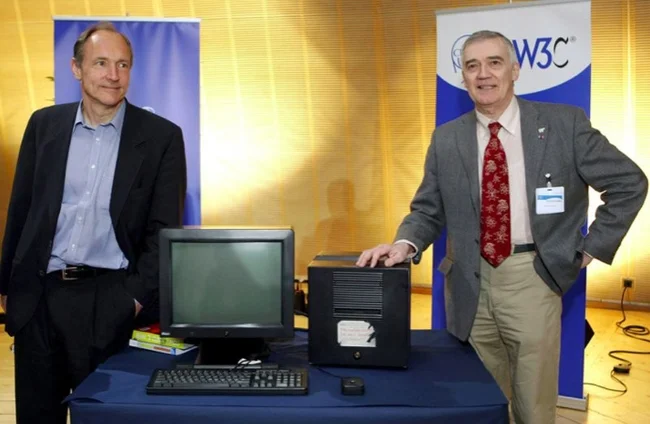
The Internet and the World Wide Web are different concepts. The fact is that the Internet can exist without the World Wide Web (but you will not be able to watch media files, read information, etc.), while the World Wide Web cannot exist without the Internet. These two entities complement each other, they are "yin" and "yang" 
For maximum convenience of using the Internet, only one thing was missing - a special program that would allow you to open all the “webs” in the form in which we are accustomed to seeing them today. Browsers came to the rescue - they became these programs.
Over time, the HTML language was developed - this is precisely the basis of the World Wide Web and the Internet, its heart and life. 
At the beginning of 2022, the Internet audience reached 4.95 billion users. Today, 62.5% of the world's population uses the Internet.
More than 1 billion people in South Asia and almost 840 million in Africa are still not using the Internet. However, despite the fact that China accounts for approximately one-fifth of all online users, more than 400 million Chinese are still not connected to the Internet. 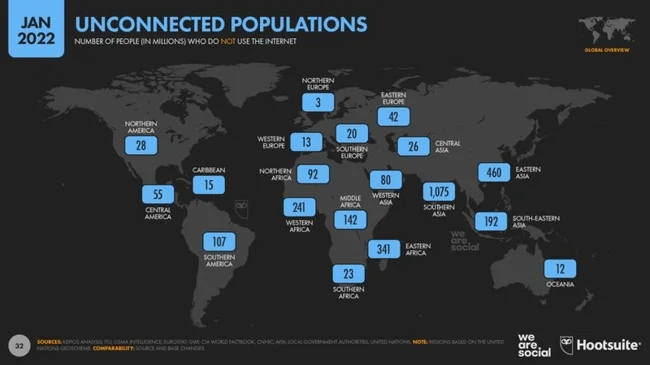
Research shows that the “typical” global internet user today spends almost 7 hours a day using the internet across all devices. 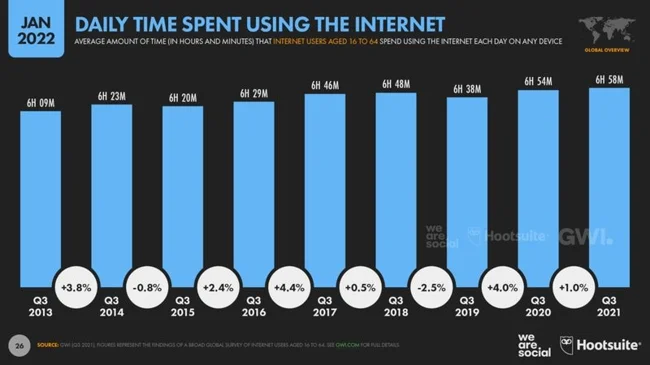
Servers in data centers around the world are responsible for the operation of the Internet. They are interconnected by kilometers of undersea cables, switches and routers, which require a lot of energy to operate. It is impossible to say with certainty how high the current energy needs of all data centers on the planet are. Estimates range from 200 to 500 billion kilowatt-hours per year—almost 3% of all the world's electricity. By 2030, consumption could grow to three trillion kilowatt-hours. 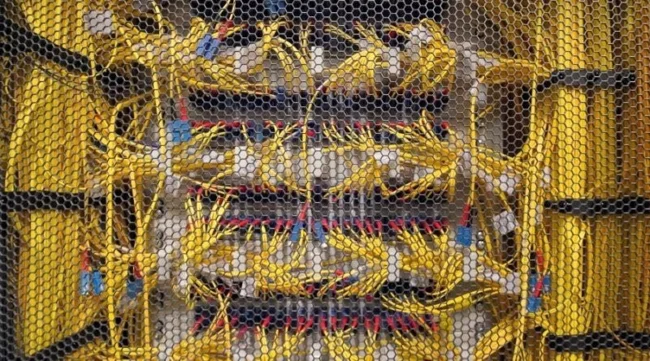
66.64% of internet users worldwide use the Chrome web browser. And Google ranks first in the ranking of the most popular search engine by a significant margin. 
There are more than 1.95 billion websites on the Internet, providing various services, products, information, etc. The total number of created and active resources can be found here. 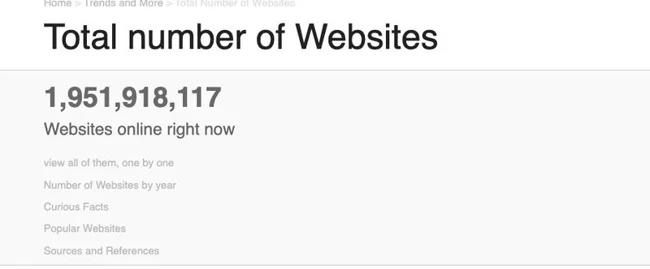
In China, special centers for getting rid of online addiction are successfully operating. But before you tease your colleagues who hang out on social networks, check how much time you spend on the Internet? This may come as a shock...
0 comments
